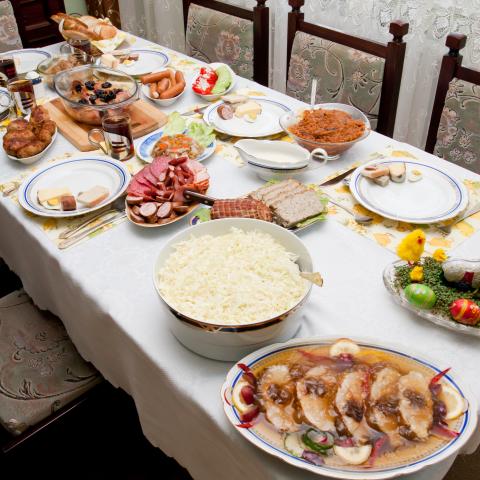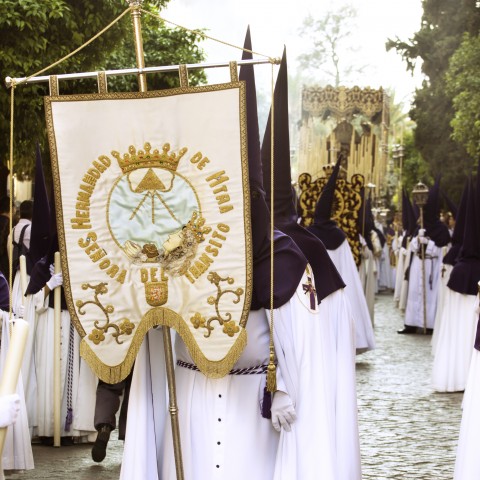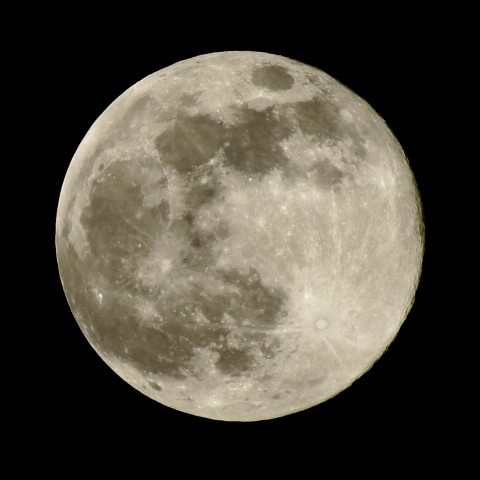Semana Santa, or Holy Week in Spain, is a Christian holiday season widely celebrated throughout the country. This holiday has a long history in Spain, and traditions today are a mix of the old and new.
In this article, you’ll learn what the most important holy days of this week represent, how the Spanish celebrate Holy Week as a whole, and more facts about Spanish Holy Week.
Let’s get started!
1. What is Holy Week?
In Spain, Holy Week is a major celebration period that starts on Palm Sunday and ends the day before Easter. Thus, this week is composed of six very important days for Christian Catholics in the country. However, four of these days tend to be more fervently celebrated than the others:
- Palm Sunday (Domingo de Ramos). This holy day is observed in celebration of Jesus’ arrival into Jerusalem a week before his Resurrection from the dead (Easter).
- Holy Wednesday (Miercoles Santo). People observe this holy day in commemoration of Judas’ betrayal of Jesus.
- Good Friday (Viernes Santo). On this holy day, people in Spain commemorate the passion and death of Jesus.
- Easter Sunday (Domingo de Pascua). This is the day on which Jesus is said to have been resurrected.
Later in this article, we’ll go over what Holy Week traditions in Spain look like for each of these holy days.
-
→ Do you want to learn some more relevant vocabulary? Check out SpanishPod101’s Religion vocabulary list (Mexican Spanish).
2. When is Holy Week in Spain?
The start and end dates for Holy Week vary from year to year. For your convenience, here’s a table of this holiday’s start and end dates for the next ten years.
| Start Date | End Date | |
|---|---|---|
| 2020 | April 5 | April 11 |
| 2021 | March 28 | April 3 |
| 2022 | April 10 | April 16 |
| 2023 | April 2 | April 8 |
| 2024 | March 24 | March 30 |
| 2025 | April 13 | April 19 |
| 2026 | March 29 | April 4 |
| 2027 | March 21 | March 27 |
| 2028 | April 9 | April 15 |
| 2029 | March 25 | March 31 |
3. How is Holy Week Celebrated in Spain?
The Four Most Important Days and Traditions
As mentioned earlier, there are four days during the week which are considered the most important. Thus, most of the major celebrations take place on these days.
On Palm Sunday, people bring palm or olive branches to the church to be blessed in commemoration of Jesus’ arrival in Jerusalem. Because Holy Wednesday commemorates Judas’ betrayal of Jesus, citizens in some parts of Spain wear black robes and hoods, carrying percussion instruments to fill the day and night with the sound of drums. On Good Friday, the day of Jesus’ passion and death, people put on representations of the Vía Crucis, or “Stations of the Cross.” Further, meat consumption is forbidden on this day.
The most important of these holy days is that of Easter, or Pascua. In some regions of Spain, people paint colorful eggs, while others perform more traditional rituals such as burning straw dolls.
Food and Cuisine for Holy Week
For Holy Week in Spain, traditions often involve food. The traditional Holy Week cuisine is known for its austerity, though there are a few common dishes such as garlic soup or salted cod. Cod is used to make croquettes, doughnuts, and fritters; another popular dessert is the Easter cake.
-
→ Getting hungry already? Study up on 10 Spanish Foods you’ll love!
Holy Week Parades and Processions
Perhaps the most spectacular celebrations for Holy Week take place in southern Spain. This is where massive, well-funded parades are put on by the brotherhoods for all to see. If you happen to watch one of these parades, the big conical-shaped hats may get your attention right away. These are called capirotes, and they originated in the Inquisition. The Catholic Church used to put a similar type of hat on the condemned during the Middle Ages, except it had paintings on it that denoted a person’s crime or punishment.
Another thing you can expect to see is a Spanish Holy Week procession. During such a procession, Nazarenes, bearers, and penitents go forth. The Nazarenes are believers who wear robes that denote the color of their brotherhood, the bearers are those who carry the heavy figures on their shoulders and neck, and the penitents are believers who mortify themselves in some way in order to remove themselves from guilt or to ask favor.
4. Good Luck
For Holy Week, Spain has a fascinating trick for getting good luck. Do you know what it is?
Wear something new! This is a very well-known custom, and there’s even a proverb that says: “On Palm Sunday, he who does not wear something new, does not have hands.”
It doesn’t matter so much what type of clothing you wear, as long as it’s new.
-
→ Here are some words you’ll need when buying new Clothing Accessories in Spanish.
5. Essential Holy Week Vocabulary
Ready to review some of the vocabulary words from this article? Here’s a list of the most important Spanish words and phrases for Holy Week!
- Viernes Santo — “Good Friday”
- Pascua — “Easter”
- Semana Santa — “Holy Week”
- Procesión — “Procession”
- Vía Crucis — “Stations of the Cross”
- Resurrección — “Resurrection”
- Domingo de Ramos — “Palm Sunday”
- Jueves Santo — “Holy Thursday”
- Sábado Santo — “Holy Saturday”
- Domingo de Pascua — “Easter Sunday”
- Crucifixión — “Crucifixion”
- Palmón — “Palm”
To hear the pronunciation of each word, and to read them alongside relevant images, be sure to check out our Spanish Holy Week vocabulary list!
Final Thoughts
We hope you enjoyed learning about Spain’s Holy Week with us, and that you took away some valuable cultural information.
Do you celebrate Holy Week in your country? If so, are celebrations similar or quite different from those in Spain? We look forward to hearing from you in the comments!
If you’re fascinated with Spanish culture and just can’t get enough, we recommend that you check out the following pages on SpanishPod101.com:
- Five Things You Should Know About Spanish-Speaking Cultures
- How to Celebrate Corpus Christi in Spain
- Running of the Bulls: San Fermin Festival in Spain
- Tomato Fight: Spain’s La Tomatina Festival
- Learn Spanish with Spanish Shows on Netflix
That should be enough to quench your thirst for cultural knowledge for a little while, but for even more great learning resources, create your free lifetime account today. SpanishPod101.com has tons of fun and effective lessons for learners at every level, so there’s something for everyone.
We look forward to having you! 🙂













